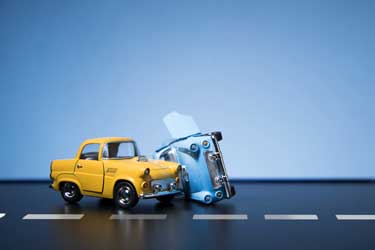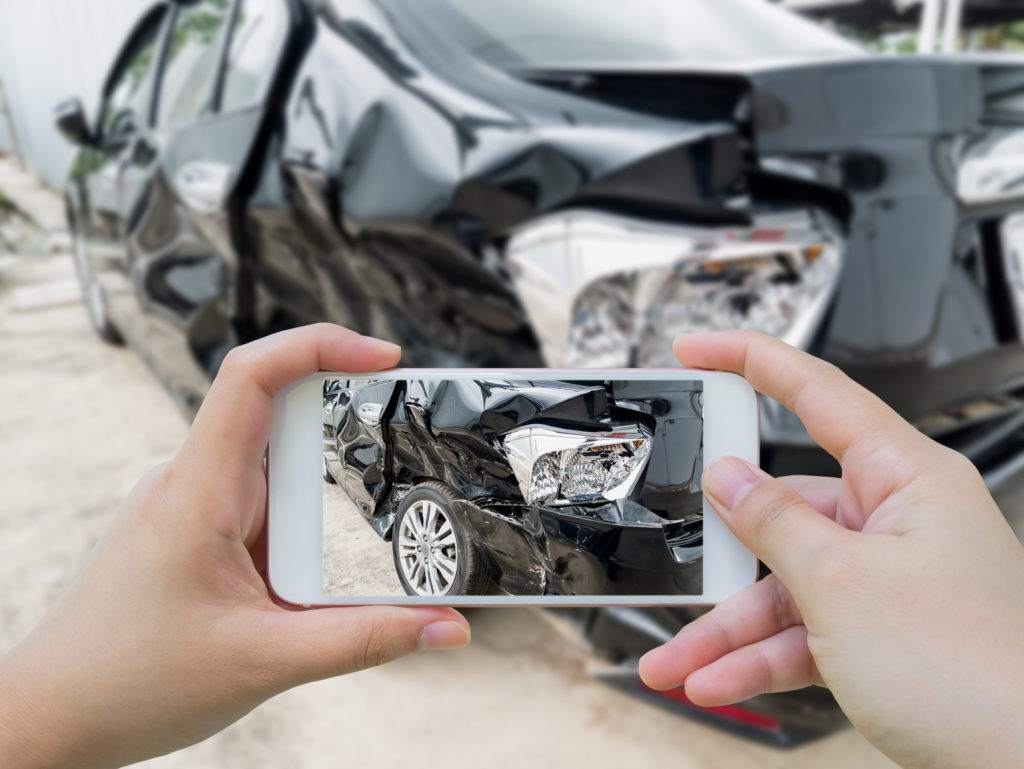
Understanding Washington State Car Accident Laws
Being involved in a car accident can be a painful, scary, and confusing experience. It’s important to know and understand the Washington State car accident laws.
It can be difficult to know where to go, whom to talk to, and what is required after a car accident in Washington State.
In Yakima, the experienced car accident attorneys at Kapuza Lighty have helped many clients navigate Washington State car accident laws to ensure that you have done everything required as well as protect your injury claims.
To learn more about Washington State car accident laws, call 509-866-4166 or contact our office online today to schedule a free consultation.
Q: What Are the Reporting Requirements for a Washington State Car Accident?
A: According to the Washington State Patrol, anyone involved in a car accident is required by law to report the accident if any of the following instances occur:
- Damage to a single vehicle or property is estimated at $1,000 or more
- Any injury or death of a person
This applies to all people potentially involved in an accident, including the driver, passengers, pedestrians, bicyclists, property owner, and anyone else who might be affected by the car accident.
Q: What Should I Do Immediately After a Car Accident?
A: A serious car accident can be a terrifying time. Your first priority should be to make sure you and any passengers are safe and out of harm’s way. You might feel utterly disoriented after your accident.
It’s okay to take the time to do a safety check. Before doing anything, scan yourself mentally and physically to see how you are feeling and if anything feels hurt.
If you are feeling alright, you can proceed. If not, make sure EMTs are called immediately.
Once you have established your safety, call the police. In an accident with severe property damage, you’ll likely be required to report anyway. Even if you aren’t, however, the police can make a report of the scene right away.
If you can, take photos of the vehicles and the scene of the accident. This is important evidence for your attorney and the car insurance company later on.

Don’t leave the scene without exchanging information with the other driver, including a photo of their ID, their registration information, their contact information, and their insurance.
If possible, when you leave, write down everything you remember about the accident as soon as you can.
Don’t forget to see a physician. Even if you think you aren’t injured, you may have no idea what is going on internally. Seeking medical attention immediately will ensure that any possible injuries are caught as soon as possible. It’ll also be important for your claim later on.
Q: What Are the Auto Insurance Requirements in Washington State?
A: Washington state mandates that all drivers carry a minimum level of auto insurance when driving in the state. The Washington State liability minimums for auto insurance include $25,000 for single person injuries or death, $50,000 for total injuries if more than one person is injured, and $10,000 in property damage coverage.
The state also allows in lieu of minimum auto insurance coverage for a person to apply for a certificate of deposit to guarantee financial responsibility with the state Department of Licensing or provide a liability bond of at least $60,000.
It is important to note that liability coverage covers the cost of damages for others involved in the accident but not for you. Additional coverages like collision coverage, personal injury protection (PIP), and uninsured motorist coverage can provide protection for you if you are involved in an accident with someone who does not or cannot cover the costs of your damages in an accident.
Q: What Is Personal injury protection (PIP)?
A: PIP insurance coverage is available in addition to your regular auto insurance policy. It is intended to cover the costs, up to certain limits, of
- Medical expenses,
- Lost wages,
- Loss of services, and
- Funeral expenses.
Under Washington auto accident laws, you do not need PIP coverage, but your insurance company must offer it to you.
Q: What Happens If the Other Driver Is Uninsured or Underinsured?
A: Sadly, some individuals choose to drive illegally without auto insurance coverage. If the other driver is uninsured, you will file a claim with your own auto insurance. You should be covered if your policy includes uninsured/underinsured motorist coverage.
Q: Should I Talk to an Insurance Adjuster?
A: You should be very careful when talking to an insurance adjuster or making a statement about the accident without an attorney.
The insurance companies, including your own, rarely have your best interests in mind when an accident is reported and a claim is made for damages. They want to make the claim go away as fast as possible for as little compensation as possible. Oftentimes, insurers will make an offer immediately for far less than what an injury victim is owed.
A lawyer always has your best interests in mind and serves as a shield between you and the insurance companies. Your attorney will communicate and negotiate with the insurers on your behalf to ensure that you receive full and fair compensation for your case.
Q: How Long Do I Have to File a Lawsuit?
A: Under Washington State law, the victim of a car accident has three years from the date of the accident to file a lawsuit for damages.
Known as the statute of limitations, if a lawsuit is filed after that date the court can throw it out and bar the victim from collecting any compensation for their injuries from the parties at fault.
Q: When Does the Statute of Limitations Clock Start Running?
A: Generally, the three-year statute of limitations starts ticking on the accident date for a personal injury lawsuit. For wrongful death claims, on the other hand, the statute of limitations clock does not begin running until the date of the victim’s death, which can be much later than the date of the accident.
Remember, there are exceptions to the general rules, so you must speak with an attorney as soon as possible after a crash.
Q: Is Washington an At-Fault State?
A: While many states have no-fault auto insurance systems, Washington has an at-fault-based system. No-fault states require each driver to file a claim with their own insurance carrier, regardless of which driver is responsible for the crash. However, in Washington, as in other traditional at-fault systems, you can file a claim against the driver that caused the crash. You are not required to file a claim with your own car insurance company first.
Q: How to Prove Fault in a Washington Car Accident Lawsuit?
A: Most car accident lawsuits are brought on the theory of negligence. In other words, someone else’s negligence caused the car accident. As the plaintiff, you must prove the other driver was negligent.
To prove your claim, you must show the following elements:
Duty
First, you must show the other driver owed you a duty of care. This element is relatively easy to establish as all Washington drivers must exercise reasonable care on the road.
Breach
Next, you must show the other driver breached that duty by failing to exercise a reasonable expectation of care. For example, if the driver runs a stop sign.
Causation and Damages
If you can establish the first two elements, you must prove causation. In other words, you cannot simply show the other driver breached their duty; you must show that that breach caused the accident and your injury. Establishing the link between the breach and the accident and resulting injury is usually the most challenging part of any car accident lawsuit.
Q: What Evidence Do I Need to Prove My Car Accident Claim?
A: To prove your car accident lawsuit, you must have evidence to support your claim. The stronger the evidence, the more likely you will receive a significant settlement or award. Examples of the types of evidence used in car accident lawsuits include:
- Police report,
- Hospital and doctor bills,
- Medical records,
- Eyewitness statements,
- Photos of the scene and damages,
- Surrounding video surveillance footage,
- Expert testimony, and
- Accident recreation.
A seasoned attorney knowledgeable in Washington state car accident laws can assist you in gathering evidence and building a solid case.
Q: What Can I Be Compensated for in a Car Accident Case?
A: Compensation for a car accident case includes damages for economic and non-economic harm. Economic damages include payment for out-of-pocket expenses covered by the victim after the accident, including medical bills, lost wages, property damage, and future lost income and benefits.
Noneconomic damages cover the intangible harms like pain and suffering, loss of enjoyment of life, disfigurement, disability, and emotional distress. In the worst case scenarios, when the victim of a car accident dies, the family can also seek additional compensation for wrongful death. This includes payment for reasonable funeral and burial expenses, final medical costs, and the loss of love, security, support, and companionship.
Q: What Happens If I Am Partially at Fault for the Car Accident?
A: Washington is a pure comparative negligence state, meaning you can still recover damages even if you are partially at fault for the accident. However, your damage award may be reduced by your percentage of fault.
Even if you are more at fault for the accident than the other driver, it is still possible to recover damages. Here’s an example. If a jury finds that you are 30% at fault and the other driver is 70% at fault for the accident, your award will be reduced by 30%. In other words, if you are awarded $100,000 in damages after your fault reduction, your total award will be $70,000.
Q: Do I Need an Attorney Familiar with Auto Accident Laws?
A: While you are not required to hire an attorney to file a car accident lawsuit or have one knowledgeable in Washington state insurance claim laws, we always recommend consulting with an experienced personal injury lawyer. Navigating Washington state car accident laws can be difficult, and litigation can become complex. Having an experienced attorney is your best chance at success.
Talk to Our Yakima Personal Injury Attorneys Today
Reach out to us online today or call 509-866-4166 to learn more about car accident cases and to schedule a free review of your case with one of our knowledgeable personal injury attorneys.
